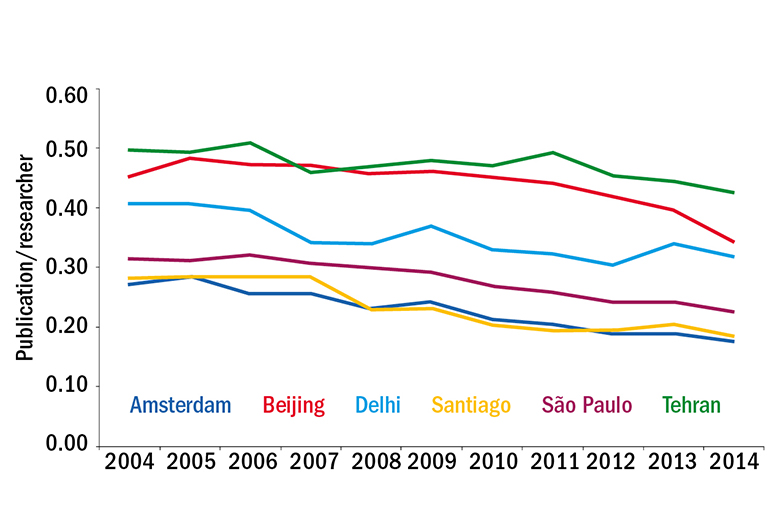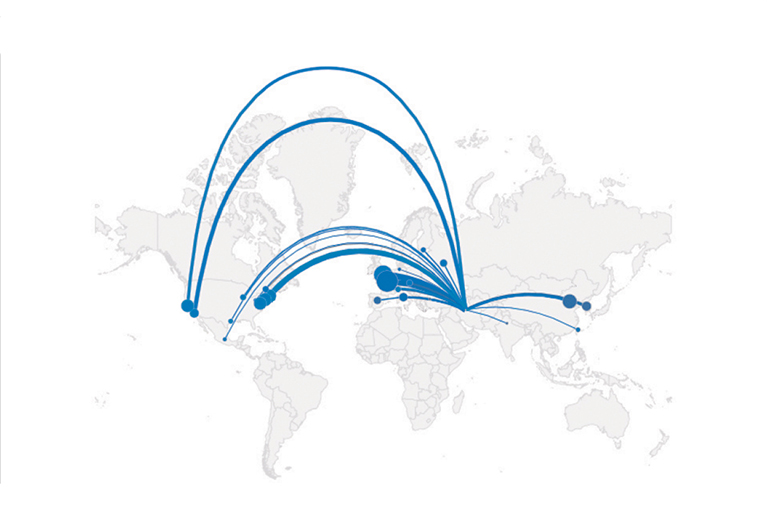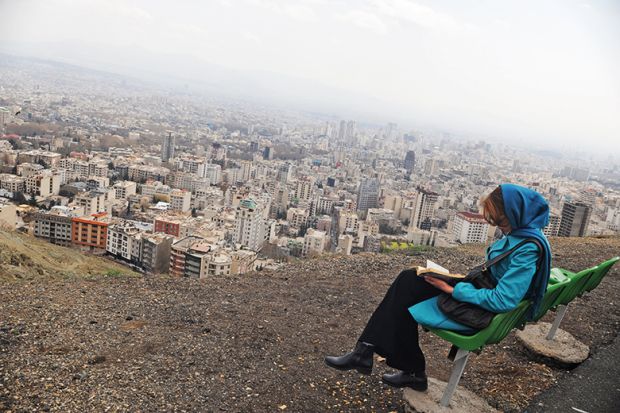When putting together a list of cities in developing countries likely to emerge as potential research and knowledge hubs in the next few years, Tehran may not necessarily be on the tip of your tongue.
But a new slant on bibliometric data has identified the capital of Iran to be potentially as important as Beijing or Delhi in terms of cities growing their academic international collaboration in certain fields.
According to data presented at the Going Global conference in London last week, researchers in the city are also producing more papers per academic than some other peer cities.

M’hamed el Aisati, vice-president for funding, content and analytics at Elsevier, who presented the data extracted from its Scopus and SciVal databases, said that Tehran was meeting the requirements of an emerging knowledge hub by playing to its key research strengths.
In Tehran’s case these were fields such as energy, where its research has a field-weighted citation impact approaching 50 per cent above the world average.
Its universities are also successfully reaching out in terms of establishing academic collaborations across the world. These include working with universities in key higher education cities such as San Francisco, Boston, London, Paris and Beijing as well as with multinational industry partners such as US firm IBM or Dutch electronics giant Philips.
Collaborations between Tehran and other cities, 2010-14

The findings echo some research by Times Higher Education – in partnership with the Centre for Global Higher Education – last year that identified Iran as among seven potential future stars of higher education named the “TACTICS”.
Mr Aisati said that by choosing Tehran as an example of an emerging city he was not suggesting that it was ahead of every developing metropolis in terms of research, but it was interesting that it had been relatively successful despite its isolation politically.
“Despite the language and cultural barriers, despite the isolation that the country has had, Tehran as a city – driven by its universities – is giving an example to other regions that they can drive interesting research collaborations that potentially will lead to economic growth for regional and city economies,” he said.
A key test in the coming years is likely to be whether Tehran can sustain this growing importance or whether it will be hindered by international politics, and in particular its relationship with the US.
The election of Donald Trump and change in foreign policy towards Iran, particularly making it one of the countries subject to his attempts to impose temporary travel restrictions to the US, could dampen research ties.
But Mr Aisati said that in his view countries such as the US would always realise in the end that some of their best academics were coming from cities such as Tehran.
“Your benefits as a country will eventually drive [how others see you]…and I think [the] US will just find out that the [best academics] they have are coming from countries like Iran…and banning a country like [that] or others is not really helping,” he said.
Kaveh Madani, reader in systems analysis and policy at Imperial College London, who last year organised the first official UK-Iran research symposium in seven years, agreed that cross-border academic cooperation would continue since common sense would “unite people even in an unpleasant political environment”.
He said that Tehran’s emerging importance as a knowledge hub was partly as a result of Iran expanding its higher education system as the population increased after the 1979 revolution. Many of the students that first went through this expanding system are now becoming academics, he said.
This has been coupled with an increased emphasis on research in master’s programmes, which had the dual effect of then giving students the right experience to help land scholarships at universities in the West.
“Postgraduate studies in Iran is similar to the American model with a strong research component,” Dr Madani said. “So, we can see that the university systems [in Iran] have seen a transition from education-only (with little research) institutions to education and research institutions.”
He added that the “valuation and promotion” system for scholars in Iran also gave “strong incentives to academics to publish papers. The promotion system is relatively tough and without good research performance, academics do not get promoted.”
Find out more about THE DataPoints
THE DataPoints is designed with the forward-looking and growth-minded institution in view
POSTSCRIPT:
Print headline: Tehran: a new knowledge hub coming into view?
Register to continue
Why register?
- Registration is free and only takes a moment
- Once registered, you can read 3 articles a month
- Sign up for our newsletter
Subscribe
Or subscribe for unlimited access to:
- Unlimited access to news, views, insights & reviews
- Digital editions
- Digital access to THE’s university and college rankings analysis
Already registered or a current subscriber?
